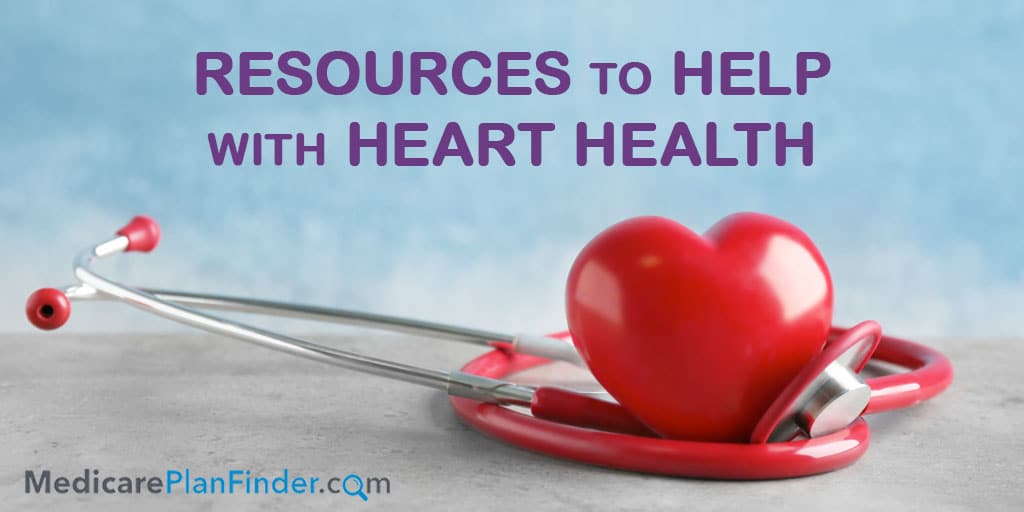
3 Heart Health Resources you Should use
June 13, 2019It’s never too late to start making good decisions regarding your heart health. As you age, your risk of developing heart disease dramatically increases.
You can help manage the risk by taking an active role in maintaining your heart health, and using the free resources you have at your disposal, including:
1. Medicare Preventive Services for a Healthy Heart

Your doctor may be your best resource for keeping your heart healthy. Did you know you can get a free wellness exam every year if you have Medicare insurance?
The Medicare Annual Wellness Visit (AWV) may include measurements of your height, weight, BMI and blood pressure, which can help identify your risk of developing heart disease. During your AWV, your doctor can discuss action plans for your diet and exercise in order to help minimize your risk of developing a heart condition.
Medicare will also cover blood tests for cholesterol once every five years. The heart screening will measure your cholesterol, triglyceride and lipid levels. An electrocardiogram (EKG or ECG) will give your doctor a picture of your heartbeat. EKGs fall under medically necessary diagnostic testing. Medicare will pay for an EKG if your doctor orders one.
Work with your doctor to develop a diet and exercise plan. Medicare will cover medically necessary obesity screenings and nutrition counseling.
Some private health insurance policies called Medicare Advantage plans will cover fitness classes along with all of the wellness services Original Medicare covers. Talk to an agent about finding a Medicare Advantage plan that will allow you to keep your doctor and access every service you need.
2. Risk Tracking for an Accurate Picture of Heart Health
The American College of Cardiology offers CardioSmart for free. The website features a BMI calculator, a Heart Disease Risk Assesment, and a Cholesterol Calculator online (as well as a “Med Reminder” app to remind you to take your medication).
As you age, it becomes more important to track your weight, your cholesterol levels, and your overall diet. Additionally, you should look at your family medical history. Find out what kind of genetic risk you have for developing heart disease. If you have immediate family members with a history of heart conditions, that may indicate that you have a greater risk of developing cardiovascular disease.
3. Take Control of Your Diet and Exercise

Your risk for heart disease is closely linked to your weight. If you’re overweight or obese, you have a much greater chance of developing heart disease, and losing weight is one of the most effective ways to help prevent heart disease.
A 10 percent weight loss significantly reduces your heart disease risk. Consistent calorie tracking is one of the most important steps in losing weight successfully. It may seem difficult to track what you eat, but there are hundreds of tools out there that can help you. If you are at risk for heart disease, you’ll want to focus on eating lean proteins while cutting down on fats and sodium and increasing your fiber intake (whole grains, fruits and vegetables).
You can create your own tracking system by writing down what you eat every day, or you can try using an app that will store your information and help you figure out your caloric intake. MyFitnessPal is one example of a free app that is easy to use.
All you have to do is enter the foods you eat and any exercise you complete throughout the day. It’ll track your nutrition and your calories and tell you if you’re eating too much or not eating enough of any specific food group. The MyFitnessPal mobile app even has a feature that allows you to scan a package’s barcode and upload the food’s nutritional information.
Let us Help
A comprehensive health insurance plan is a great resource to help you stay healthy. Medicare Plan Finder agents can help you find a plan that covers the services you need while fitting your budget and lifestyle. Call us at 844-431-1832 or contact us here to learn more.

This post was originally published on October 12, 2017, by Anastasia Iliou and was updated on June 13, 2019, by Troy Frink.

